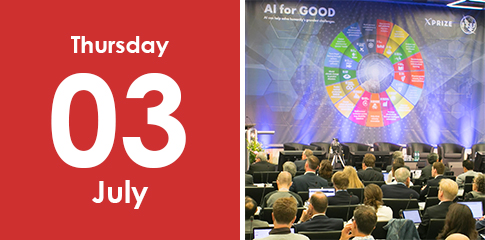A few years ago, writing a blog on the topic of advocacy would not have been possible because the term would not have been immediately associated with philanthropy. However, the history of advocacy is long and has been constantly intertwined with philanthropy.
Definition
The term “advocacy” was first used in the United States in the 1950s. But the concept is much older. The abolitionist movements of the eighteenth century were already engaged in transnational advocacy. A deliberately broad and general definition might be: advocacy is the act, practice or processes of defending or promoting an idea, person, cause, movement, legislation, but also a product or project. Advocacy aims to influence a specific audience, which may be local, national or international, or even global. Individuals, institutions, international organisations, non-governmental organisations (NGOs), trade associations, or philanthropic foundations can conduct advocacy. It uses a variety of techniques and instruments to influence perceptions, behaviour, opinions or policies. It can be multidimensional, multidirectional, multi-jurisdictional.
Since the 1990s, social scientists have associated the term advocacy with the activities of NGOs, especially those whose work focuses on humanitarian aid, development, the environment, education and public health. However, we know that these themes are historically linked to the international (and national) activities of philanthropic foundations and organisations of utilité publique.
Advocacy vs philanthropy
But the question is: When, where and how does advocacy meet philanthropy? The lack of a clear definition of advocacy influences the way some philanthropic foundations accept (or not) to talk about their advocacy strategy. The overlap and possible confusion between political campaigning, lobbying and advocacy practices is problematic for any philanthropic foundation that would not want to, or could not legally, undertake political activities or lobbying. Admitting to undertaking advocacy would be risky in this case and the coming together of advocacy and philanthropy may not take place when advocacy refers to activities that aim to defend or promote a political or ideological line. If the definition of advocacy is not carefully differentiated from that of lobbying – as an action aiming to influence legislation through direct contact with policymakers – a given legislator could prohibit philanthropic foundations or organisations of utilité publique from undertaking advocacy.
A less clear-cut and more nuanced reality than formally perfect definitions exists. Let’s assume that foundation (X) invests in the eradication of a disease and does so publicly. I argue that in this case it is doing advocacy. Indeed, this foundation (X) carefully explains why it is taking a stand in favour of a vaccination, how it is doing so and why it supports the sale of the necessary drugs at cost. This plausible example, based on existing situations, is useful in underlining the following argument: to think that philanthropic foundations are “rootless”, devoid of political, religious, philosophical and moral opinion, of a socio-economic vision, is simply false. These actors have always undertaken and will always undertake advocacy corresponding to their worldview in their fields and following their own modus operandi and techniques. Foundations are activists; when and if they can, they lobby in compliance with the laws of the country where they are headquartered and should also comply with those of the foreign countries in which they operate (a vast subject that would deserve an article of its own).
Ergo, advocacy is intrinsically linked to philanthropy. From an analytical point of view, if we want to examine the possible areas of tension between advocacy, political campaigns and lobbying more closely, we can only contextualise in time and in space – local, national, international – and take into account the specific social, political and legal dimensions of a given action. The fact that a foundation, or an organisation of utilité publique, takes a position in favour of or against the subject of a referendum or a bill may be a problem in one country and not at all in another. Here is the – political – crux of the matter: when does political activism or lobbying go beyond the accepted (acceptable) perimeter and therefore render the privileges – such as tax privileges – of a foundation or a public corporation null and void?
Conclusion
In conclusion, to return to the history of philanthropy and its relationship to advocacy, while historians have studied the activities of some philanthropic foundations beyond national borders, it is the activities within national borders that deserve more attention, both past and present. Indeed, these activities say a lot about the vision and modus operandi – and therefore the advocacy nature – of a given foundation or organisation of utilité publique. The transnational or international expansion of philanthropic foundations is far from systematic. Furthermore, the study of continuities, changes and ruptures in the meaning of the terms ‘utilité publique’ and ‘philanthropy’ remain crucial elements in understanding the nature of the advocacy that philanthropic actors undertake, whether or not they are occidental, whether or not they operate internationally.
Davide Rodogno
Professor of International History and Politics, Director of the Certificate in Advanced Studies (CAS) in Advocacy and International Affairs at The Graduate Institute Geneva
davide.rodogno@graduateinstitute.ch
A french version of the article can be found here.
The original article was published by the Swiss Philanthropy Foundation, in their blog Le Temps, on 06 September 2021.









0 Comments